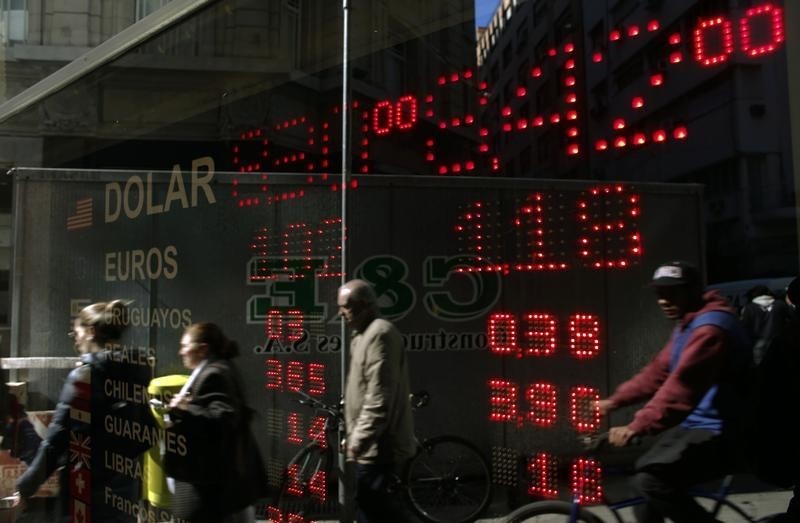By Lisa Twaronite
TOKYO (Reuters) - The dollar started the day on a firm tone on Tuesday, as anxiety over Greece's debt crisis helped push the euro toward a one-week low.
The euro was down about 0.1 percent on the day at $1.1145, moving back toward Monday's trough of $1.1131 and well away from a two-month high of $1.1392 touched last week.
Two Greek finance ministry officials told Reuters that Athens paid about 750 million euros to the International Monetary Fund a day before it was due, but this was not enough to alleviate anxieties that the country will be able to make future payments.
As euro zone finance ministers met in Brussels to discuss a cash-for-reforms deal with Athens, Greek Finance Minister Yanis Varoufakis said on Monday that a referendum on Greece's bailout is not planned for the time being, and that capital controls have not been considered for the country.
Traders see the chances that of Greece will leave the eurozone at slightly less than one in four, a Reuters poll found.
"Barring an unforeseen shock, Greece should be able to carry on negotiations into June, but cash positions are low. Based on our expectations debts will have significant trouble being met beyond mid-June," Richard Cochinos, head of Americas Group of 10 currency strategy at Citigroup (NYSE:C), wrote in a note to clients.
Against the yen, the dollar added about 0.1 percent to 120.13 yen, well above its overnight low of 119.40 and solidly within its ranges held since mid-March.
The New Zealand dollar marked a fresh 7-1/2 week low of $0.7333 and last stood at $0.7340, licking its wounds after plunging in the previous session after ANZ bank predicted that the Reserve Bank of New Zealand (RBNZ) would cut rates in both June and July.
The kiwi posted its biggest one-day decline against the U.S. unit since late 2011 on growing expectations that the central bank would cut rates.
The pound was flat on the day at $1.5576, taking a breather after scaling its highest peak of the year against the greenback on Monday, rising as high as $1.5614 in the wake of Prime Minister David Cameron's British election victory.

On Monday, the Bank of England kept interest rates steady at a record-low 0.5 pct as expected. On Wednesday, Governor Mark Carney will present a quarterly update to the central bank's forecasts growth and inflation predictions.